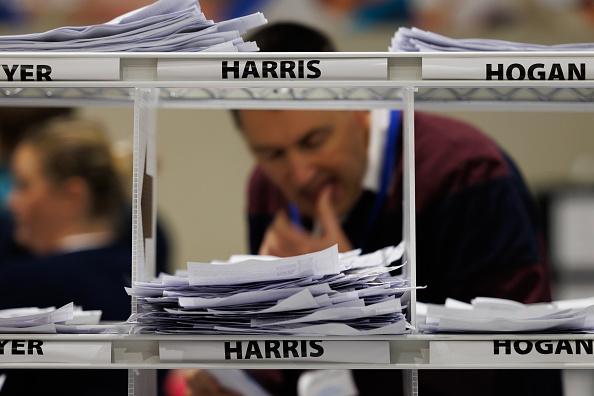Germany’s Greens party economy minister Robert Habeck has called for the relaxing of fines on automotive emissions that were set to hit European Union carmakers with €16 million in fines.
EU fines should instead be made more flexible so those companies could “reduce or completely avoid” the fines, Habeck, who is also Germany’s vice-chancellor, told journalists December 10.
EU vehilce manufacturers sold two million fewer unit so far un 2024 as Chinese companies increased their market share in the continent. “In this difficult situation for the car industry, I think we don’t have to take additional billions from the companies,” said Habeck.
Greens politicians have increasingly tried to show they can put Germany’s shrinking economy and automotive sector ahead of climate rules.
The country faces February 23, 2025, federal elections after the November 6 collapse of Chancellor Olaf Scholz’s coalition of the Social Democrats, Free Democrats and Greens parties.
The Greens’ vote share had fallen from 14.7 per cent at the last election to 11.5 in a December 6 INSA poll.
Habeck, whom the Guardian in September 2023 called “the world’s most powerful ‘green’ politician”, is now attempting to halt his party’s fall in the polls by showing he can be empathetic towards a German automotive industry haemorrhaging both money and jobs.
“What I can envisage is that the emissions targets remain but that you stretch fines over a longer period of time. Companies can then reduce or completely avoid fines by ramping up e-mobility more quickly,” Habeck added.
In November, BMW said its third-quarter profits dropped by 61 per cent from the same quarter a year before. Mercedes-Benz Group issued a profit warning in the autumn, saying its pre-tax earnings for the year were likely to dip to €15.85 billion from €19.7 billion in 2023.
Increasingly stringent emission standards, coupled with the EU’s Green Deal and ban on combustion engines from 2035, have radically upset Europe’s auto industry and forced it onto a politically motivated transformation course, prominent German economist Hans-Werner Sinn told Deutsche Welle on October 23.
Volkswagen, which announced also in late October it was closing three factories amid job and pay cuts, was “only an early victim”, and “there’s more to come”, said Sinn.
The European People’s Party (EPP), the largest political group in the European Parliament, on December 11 adopted as party policy a plan to “avoid penalties for the [automotive] industry and propose how we can help the industry,” according to Jens Gieseke, a CDU party MEP from Volkswagen’s home State of Lower Saxony.
The EPP proposed giving carmakers a three-year period to average out emissions, with Gieseke adding: “We have a clear expectation that our proposals will be properly taken into account by the EU Commission”.
The EPP also went further than the Greens by calling for “a revision of the ban on internal combustion engines” and a” technology-neutral approach to encourage innovation”.





